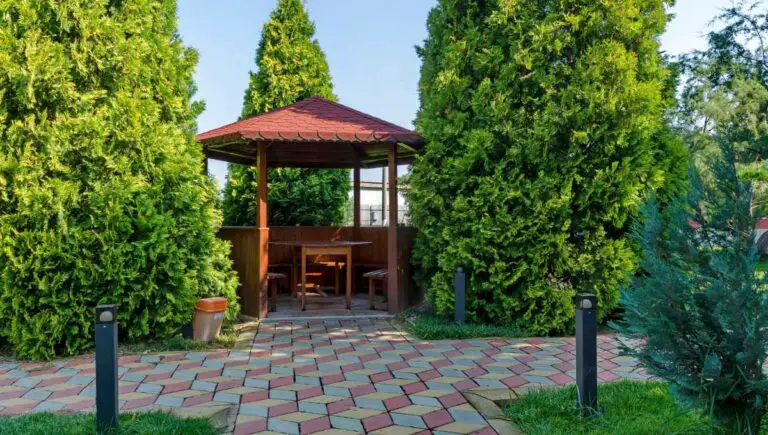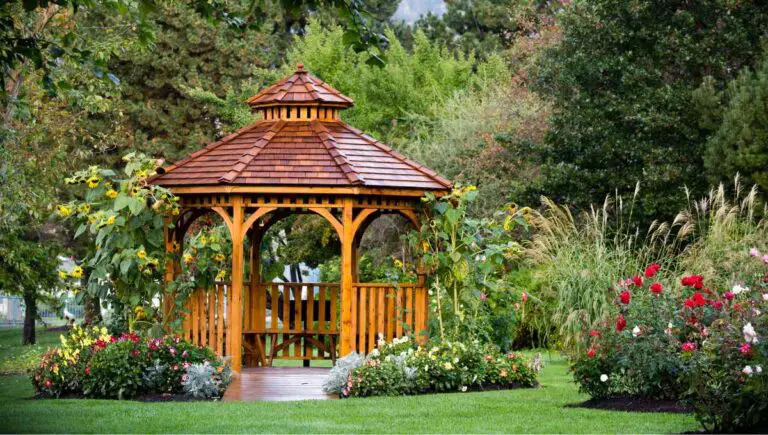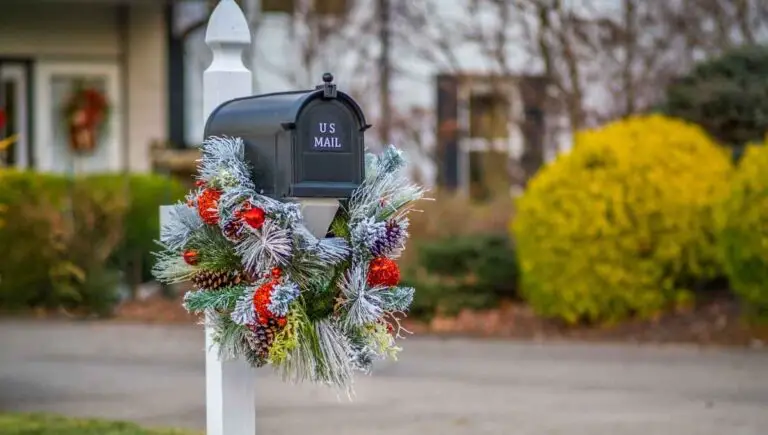How to Reduce Traffic Noise In My Backyard

Your backyard can be a great place for a retreat of peace and quiet. But no matter how beautiful this space can get, your moment of silence will always be ruined with loud traffic noise. If your home is situated near busy streets, you may have already searched for ways on “how to reduce traffic noise in my backyard.”
The good news is that you don’t have to put up with unpleasant noises coming from the road and getting in the way of relaxing in the backyard. There is no need to hide all day long inside your house just to have that much needed quiet time. While you can’t totally block the noise in your garden, there are tips on how to reduce it so it can be more tolerable.
Why Should You Soundproof Your Backyard?
People experience noise at different levels every day but some types of noise can be so great, they have adverse effects on health. People in urban areas are more likely the ones to get exposed to noise pollution. But even places that were once quiet are slowly experiencing noise pollution due to modern advancements.
Several scientific studies have already been conducted to show the effects of noise on hearing. According to Environmental Health Perspectives, these studies confirmed that certain noises can cause hearing loss, especially if a person is exposed to it for longer periods.
Besides hearing loss, noise – especially those coming from the road – can just be annoying. It means not being able to enjoy an afternoon of mindful contemplating due to blaring horns from cars or the sound of a big bike zooming by.
How to Block Road Noise In Backyards: Absorption vs Deflection
Learning how to block road noise in backyards requires you to understand what noise is about, know the source of the noise, as well as what type it is so you’ll know if you need noise-reducing materials that can deflect or absorb.
Sound deflection is considered the most effective method of blocking road noise in residential areas. This approach involves making the sound bounce off your yard and back to the source, ultimately avoiding noise and letting you enjoy a quiet moment.
Blockades that deflect sounds are the most effective methods of reducing noise in your garden. However, they can be really expensive as well.
On the other hand, there is a method called sound attenuation. This involves reducing the intensity of sound by absorbing the sound waves. You will still hear noise when you use blockades that absorb sound but the levels are tolerable, and you can still pretty much enjoy a moment of peace in your backyard.
Qualities of Excellent Noise Reduction Barriers
As you plan to look for noise reduction barriers for your backyard, you have to make some considerations on what to look for. Barriers are available in different shapes and sizes and it’s important to get one that’s right for your property.
If you have too small of a barrier, reducing the noise coming to your yard won’t be effective. Here are some recommendations:
- Height – The higher the barrier you have, the more effective it will be at reducing noise. To efficiently block off noise from adjacent roads, put up wall barriers that are at least two meters high. Also, take into consideration height and width restrictions your local council has mandated.
- Density – A barrier should also be dense and rigid, but it depends on where your house is located. If you’re too close to highways, then you will need a denser and more rigid noise-reduction barrier. For areas less exposed to noise but still exposed nonetheless, a low and small barrier would be enough.
- Coverage – Excellent outdoor sound barriers should have full coverage including at the base and the corners. This means the barrier should cover the ground evenly. Gaps at the base and corners of your yard can allow noise to enter.
- Placement – Your barrier should also be placed near the noise source – in this case, the road.
Is It Expensive To Soundproof Your Backyard?
As you now search for ways on how to block road noise in backyards, you will start to wonder if a soundproof backyard is going to cost you an arm and a leg. The answer varies since there are different methods on how you can block out noise.
For instance, the more popular method is installing a road noise reduction fence but there are many different types based on the materials used to make them (more of this later in the next section).
If you don’t want to go that expensive route of installing heavy-duty acoustic fences, then there are also other options that may not cost a lot.
How To Reduce Highway Noise in Your Backyard
When you carefully consider the kind of sound proof fencing, traffic noise can be effectively reduced. Below are different ways on how you can block out traffic noise using outdoor sound barriers.
Brick Wall
When it comes to effective methods to soundproof your backyard, nothing beats having a brick wall. You can build a wall as tall as you like it, as long as you get permission from your local council for your desired height.
Brick walls are very dense, so they make excellent traffic noise reduction fences. The density keeps sound vibrations from passing through. Installing it the proper way without gaps ensures no sound will leak through.
Basically, brick walls are perfect in reducing traffic noise in your backyard. The disadvantage however, is that it will consume a lot of time and money to build them.
For those who really want to use brick walls but are on a limited budget, there is a cost-effective alternative – modular walls. This type of wall is available at half the price of a regular brick wall, which means great savings for homeowners. And of course, they do well with sound blocking.
Modular walls are popularly used in backyard settings. Another advantage is that it’s easy to have it installed.
Hedges
Putting up thick hedges around your yard is an excellent way to reduce the intensity of noise coming from the outside. It’s also a common solution adopted by people in residential areas. Since hedges can have gaps, they are more likely to absorb sound than to totally deflect it.
Not only will a hedge reduce noise, but it will also add to the aesthetic appeal of your backyard. The problem with them, however, is that it might take a long time for them to reach maturity.
It takes an average of five to seven years for a hedge to reach the desired height according to the RHS. There should be semi-mature ones available, but they can be expensive.
Noise-reducing Fences
Noise-reducing fences or acoustic fences are specifically designed for the purpose of blocking noises. They are either made from wood layers or plastic composite. The great thing about this type of barrier is that it’s cheaper and much quicker to install.
Timber is also an excellent material to be made into a cost-effective acoustic fence. However, it doesn’t last that long and may be considered a fire hazard. Timber fences are not recommended when you live in a bushfire-prone area.
While you can have metal or wood fences, you can still enhance their sound-blocking abilities by adding noise-reducing materials. An example of this is the Acoustifence, a flexible material you can attach to a chain-link fence or even place in a frame to make as a standalone acoustic barrier.
You can also find other sound-blocking materials, like this Amagabeli Fence Privacy Screen Heavy Duty, which you can use to cover your fence. This fence privacy screen from ColourTree also works to block noise from outside.
An Inner Sanctuary
If the space on your property permits, turn an inner spot within your yard into your noise-free sanctuary. Having an enclosure in your backyard helps reduce noise pollution further. This enclosure can be in the form of a gazebo or pergola.
In densely populated urban areas, this option may be helpful. Not only will it be a great addition to your backyard and reduce noise, but it also acts as a shelter from rain and summer sun.
Soundproof Backyard Alternatives
If you don’t want to put up a brick wall because it’s costly or you don’t want any fencing, there are other options to reduce traffic noise in your backyard.
#1. Noise-reduction Landscaping
Landscaping can be an excellent way to block out road noise as it also provides extra appeal to your property. When you go this route, make sure trees and shrubs are planted tall and dense enough that you can’t even see through them.
If the noise you want to drown out comes from neighbors, planting trees and other vegetation around your perimeter will be an effective solution. On the other hand, if you aim to block traffic noise, this method won’t be so effective.
Just remember, the denser the plant barrier is, the better you block outdoor sound. One tip is to line your perimeter with tall evergreen trees and the inner perimeter should be surrounded by evergreen shrubs.
Evergreen trees with big leaves are also great choices of plants to have if you live in a breezy area. The rustle of leaves as the wind blows can act as great white noises. You can’t deny – the sound is calming as well.
#2. The Sound of Water: How to Reduce Road Noise in the Garden
Noise can be used to block out unwanted traffic noise, but make sure you choose one that’s pleasant to the ears. Nothing is more soothing than the sound of flowing or running water in the backyard.
Water features are a great alternative to blocking noise in your yard – and it comes with a bonus on creativity. For centuries, streams, fountains and mini waterfalls have been used as sources for white noise, turning environments into a peaceful, quiet place for meditation.
Put up a water feature to drown out traffic noise. One that has good flow will be enough to disguise road noise. Place a fountain in your backyard or have an artificial stream as they produce white noise that has similar frequencies to road noise. If you pair it with other methods like a fencing or wall, you’ll likely have a beautiful, peaceful yard.
You don’t need to have a big water feature for it to be effective at blocking sounds. However, you need to make sure it’s situated close to you, or close to the spot where you usually hang out in your backyard.
Ideally, water features for drowning out road noise are placed near seating areas or near your house. That said, you need to consider the times that you need to have that soothing rushing water noise. You’ll need to make sure your water feature turns on at the right times.
While there are electric-powered ones, there are also solar-powered water features that are more energy-efficient, such as this Smart Solar Koi Fountain.
Water features may drown out consistent traffic noise, but keep in mind that it won’t be effective against blaring horns and sirens.
#3. Outdoor speakers
Outdoor music can also work as a source of white noise. When you have speakers in your outdoor living space, you can do so much with it. You can turn them into backyard noise reduction speakers by playing white noise that you can easily find on music streaming platforms. If not, you can always play mellow music from your favorite artists on your noise-canceling speakers to distract you from road traffic noise.
How To Reduce Noise Coming Through Home Windows
Now that you know some methods to drown out noises from the outside, you may be thinking about methods on how to block out traffic noise in your bedroom. After all, you would want to learn how to reduce traffic noise coming through windows, which could disrupt your sleep.
Fortunately, there are some ways you can maintain peace and quiet in your bedroom even if you live near busy roads or highways. Check out below for some tips on how to soundproof a window from traffic noise.
Caulking and Sealing Gaps
Inspect the entire room for gaps or air openings, especially around doors and windows. Regardless of the size of these gaps, it must be sealed – even the tiniest ones. Invest in high-performance latex-type caulk brands like Sashco Big Stretch.
Use white noise
Run white noise to mask unpleasant noise coming from outside, may it be a car zooming in or vehicles honking their horns, or a neighbor who mows the lawn very often. White noise can come from dehumidifiers, air conditioners or even sleep machines, that play soothing sounds of rainfall or beach waves. Try this high-rated white noise machine from Dreamegg.
Using Decor
Put up fabrics as they help absorb noise that may enter the room. To do this, lay out rugs or cover furniture with fabric. Put up potted plants as well as they can absorb sound. All these double up as decor for your bedroom.
And of course, there’s always the option to go for blackout curtains. These curtains are designed not only to keep out light but also reduce the intensity of noise, which is perfect for bedrooms. Check out the best-selling blackout curtain from NiceTown.
Install Traffic Noise Reduction Windows
The ability of a wall, partition or window to block sounds is measured using the sound transmission class (STC) scale. A regular single-pane window has an average STC score of 27; the double-pane window has 28.
Meanwhile, soundproof windows have a rating that goes as high as the mid-50s, which means they can block 95% of the noise coming from outside. Wouldn’t that be wonderful, especially if you’re situated in urban areas?
While soundproof windows are so effective, they don’t come cheap. Prices may vary but they usually range from $400 to $900. Some could even go up to thousands.
How to Reduce Noise From Main Roads: A Recap
To recap, sound travels in waves and it easily penetrates gaps. To reduce noise in your backyard, putting up barriers is really helpful. You have to know the source of the noise you’re dealing with and how much of it you want to block out.
Invest in good fencing; the more rigid and dense the material, the better it will be at blocking sounds. This will be important when you want to reduce loud sounds, such as noise from road traffic.
Use landscaping as another alternative. It adds appeal to your property and it helps absorb sound. This can be an option to go for if you’re bothered by noise from neighbors’ chatter, bickering, or even lawnmowers.
You can also invest in materials made to reduce noise. Examples of these include curtains, potted plants, acoustic foams, and even water features.
Noise barriers do their jobs at lowering the intensity of noise to make them more tolerable. They won’t, however, eliminate noise altogether.
Noise pollution can be a serious problem. Combining some of these techniques and methods can help you achieve that noise-free environment, perfect for meditation and for intimate gatherings with friends and family.






